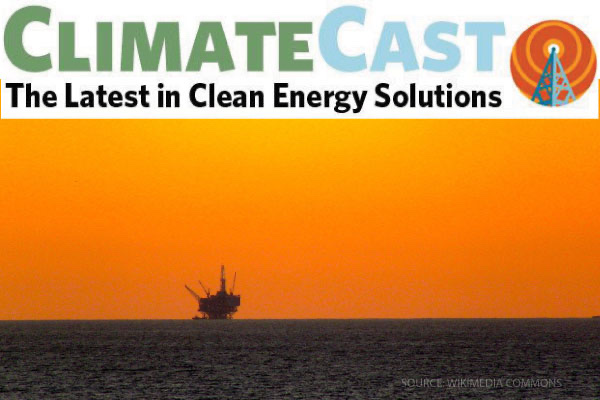California: ambitiously contradictory and paying the price
A massive oil spill hit Southern California beaches this week, renewing calls to ban offshore drilling. This disaster wasn’t purely by chance; investigators suspect the leak was caused by a ship’s anchor dragging and damaging an underwater pipeline and federal regulators have cited the company that owns the pipeline 125 times for violations in the past eleven years. The spill has also exposed a chasm between California’s ambitious climate goals—it’s aiming for net-zero emissions by 2045—and their status as the seventh largest source of fossil fuels in the country. California is notably overshadowed by this catastrophic spill and news that oil began flowing this month through the controversial Line 3 pipeline through North Dakota and Minnesota to Wisconsin.
EVs are here for all and here for good
Even more major automakers are jumping onto the electric vehicle bandwagon. Volvo is seeking $3 billion in investments to become a fully electric car company by 2030, and Ford is building three new factories dedicated to EV battery production in Kentucky and Tennessee. Meanwhile, the governors of Illinois, Indiana, Michigan, Minnesota and Wisconsin have developed a regional charging infrastructure plan to support the growing number of EVs on their states’ roads. President Biden is aiming for 50% of vehicles to be electric and zero emission by 2030 and hoping that federal tax credits will increase to $12,500 for some EVs. Across the ocean, Norway has been able to transition their new vehicle registrations from 50% gas and diesel in 2017 to less than 5% in 2021, giving us a glimpse at how fast the market can change. Electric vehicles truly are no longer a thing of the future but are the present.
Running on empty for methane gas use in buildings
More major US cities are stepping up their efforts to curb gas use in buildings, as recent climate-fueled disasters caused major gas outages and price hikes. The city of Boston enacted an ordinance requiring all buildings over 20,000 sq ft to reach net zero carbon emissions by 2050—this applies to about 4% of the city’s structures, including commercial and residential buildings that produce 60% of the city’s building emissions. Denver has also announced that it will dedicate an entire city position to building decarbonization. Perhaps most notable is the EPA’s recent elimination of gas heaters and clothes dryers from their Energy Star Most Efficient rating system. It’s a significant change as these ratings are not only consulted by consumers, but form the basis for many utility and government incentive and rebate programs. And as the federal Build Back Better package inches forward in Congress, the opportunity for all-electric buildings advances too with $18 billion in proposed rebates to help people afford electric appliances and fund energy-saving retrofits in their homes.
More than one bad apple in the Beltway
With a few Democratic senators holding up federal funding for climate action, members continue to debate potential investment numbers. As Congress dawdles, scientists and economic experts point out climate inaction is far costlier now and to future generations as well. Meanwhile, corporations including Apple, Microsoft, and Amazon are working behind the scenes to “derail the major climate bill.” In contrast, the Biden-Harris administration continued forward on climate action, releasing the plans for twenty federal agencies to address increasing climate risks, while noting the resiliency investments that would be possible through a robust infrastructure package from Congress.
Spotlight on Facebook: Still in denial about climate lies and misinformation
Social media giant Facebook dominated the news this week with a six-hour global outage and former employee Frances Haugen’s Senate testimony on the social consequences and harm incurred by the company’s breakneck growth strategy. While this isn’t climate news per se, we’re taking the moment to look at its recent efforts to address rampant climate misinformation throughout the social network.
Facebook has long been criticized for allowing lies and disinformation about climate change, climate science, and renewable energy to propagate on its platform, with CEO Mark Zuckerberg even testifying before Congress this April that climate misinformation is a “big issue.” Last month the company announced new climate initiatives, allocating a paltry $1 million dollars (Facebook’s annual revenues top $85 billion) to a “Climate Science Center” with facts, quizzes, and videos. Studies on the platform continue to show climate denying posts and resources outpace accurate information. Facebook also makes money from oil and gas advertising on its platform, with 25 companies spending nearly $9.6 million on ads in 2020.




